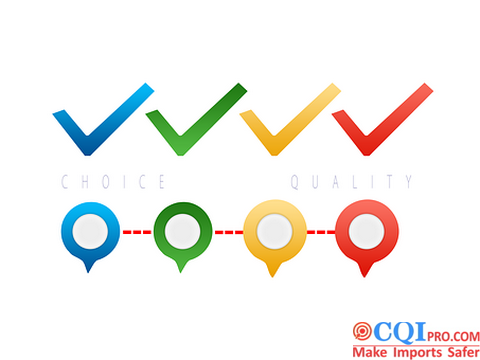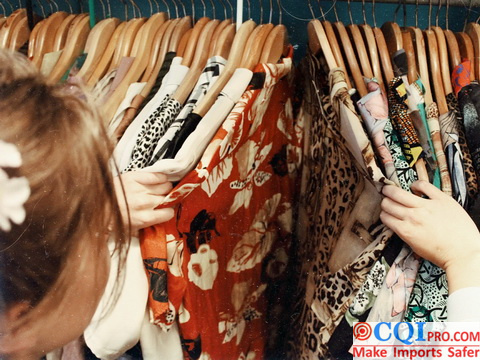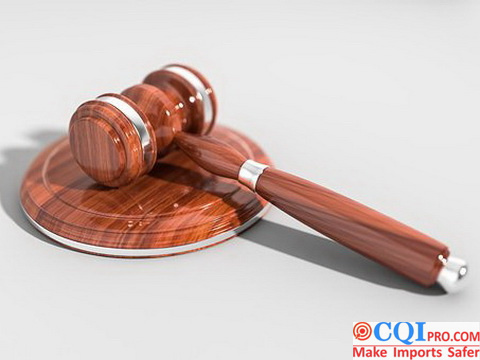Do You Know Supplier Quality Management?
By For Safer Imports • 07/19/2021 • No Comments
With economic globalization and the rise of international trade, many importers are looking to China as their global supply base for raw materials and components in order to reduce costs. Due to the large distance and communication problems between importers and suppliers, how to control the cost, quality, and productivity of each link in the supply chain will directly affect the importer’s business model. In a fiercely competitive market, how to improve product quality and reduce costs is a problem that every importer faces. Therefore, supplier quality management becomes the biggest breakthrough point for every importer.
However, some small and medium-sized importers, many of which have emerged from family businesses, are more focused on the traditional business model. In order to expand their market share, they are also starting to prepare to add Chinese suppliers to their supply chain. The name “China’s manufacturing powerhouse” is not a misnomer, as there are thousands of factories for every product category. The number of suppliers is not to be underestimated, resulting in a wide variety of supplier quality. I suggest that importers should start by understanding the quality management of their suppliers, as explained below, in order to be able to honestly and confidently say that they are a qualified importer!

What is a supplier?
For many importers, suppliers are familiar to them. Suppliers are companies and individuals who supply businesses with various requirements, including the provision of raw materials, equipment, energy, labor, etc. The activities of suppliers can have a significant impact on a company’s marketing activities. Changes in raw materials, shortages, etc. can affect the price and delivery schedule of the importer’s products, and therefore the importer’s profits. Therefore, the importer must have a more comprehensive understanding and thorough analysis of the supplier’s situation, the supplier is not only the importer’s negotiating partner, but also a partner.
How to choose a Chinese supplier?
Selecting suppliers to become strategic partners in a relationship, managing the risks of the relationship, and developing a supplier evaluation system are a few common concerns for importers. There are many criteria for selecting suppliers and using them to evaluate suppliers and ultimately to find the ideal supplier. The following are a few criteria that CQI has summarized based on years of dealing with suppliers.
- Appropriate quality of goods:When importers are selecting suppliers, the quality of goods is the main consideration. The reason is that if the quality of products put into the production process is not up to standard, it will often affect the continuity of production and the quality of the final product, which will directly affect the sales and profits of the product. Product quality has always been the core of an enterprise, and good product quality can help importers establish a reputation and build the core competitiveness of the enterprise.
- Low price level:A low product offer is an important condition for choosing a supplier. However, the supplier with the lowest price is not necessarily the most suitable one. The lowest total cost of ownership is the most important factor to consider when selecting a supplier because the total cost of ownership will increase if the quality of the product, the delivery time, or the transportation costs are not met, or if the geographic location is too far away. Furthermore, from CQI’s inspection experience, low-cost products are not only more likely to have batch defects, but also more likely to be outsourced by the factory. Such products are inevitably reworked after inspection, and as you can imagine, the delivery time is severely affected.
- Timely delivery: The supplier can according to the agreed delivery date and delivery conditions of the organization of the supply, directly affect the continuity of production, so the delivery time is also one of the factors to consider when choosing suppliers. The importer in considering the delivery time need to pay attention to two aspects of the problem: first, to reduce the production of raw materials or parts used in inventory quantities, and thus reduce the inventory accounted for funds, as well as inventory-related costs; second is to reduce the risk of material outages, to ensure the continuity of production.
- Supplier’s management system: Why is the supplier’s management system a criterion for selecting suppliers? That’s because if a supplier can’t even manage the basics, how can they have a high quality product! A quality conscious supplier will have a hierarchical and decentralized management to ensure a long-term and stable supply from different stages of the chain, ensuring that their production capacity matches the importers’ market development capabilities.
How do I manage the quality of my suppliers?
How to manage the quality of suppliers is the focus and difficulty for every importer. The quality management of suppliers is a complex process, and different entities have different priorities for supplier quality management. Then, how should the quality management of suppliers be carried out from the integrated industry and trade enterprises, trading companies and third-party inspection companies entrusted by importers?
Integrated industry and trade enterprises
Integrated industrial and commercial enterprises have their own trading departments and factories, and are generally medium to large in size, with the ability to produce and sell their own products. Due to the limited capacity or size of the factory, the company usually outsources parts or less profitable products to other suppliers. The first step in supplier quality management is supplier selection, which is the source of quality assurance. However, the focus of supplier selection is usually only on supplier sample identification and auditing, with no specific process for supplier prequalification.

For example, a Xiamen furniture factory is mentioned in the article “Why do sofa beds get better and better“, which is a medium-sized industrial and trade enterprise. During CQI’s inspection, it was found that the quality of the sofa bed produced by the factory had become better and better, and that every detail had been perfected to perfection. But the legs that were outsourced to other factories were just not up to par! Because the proportion of rust sofa legs as much as 25%, sofa legs dirty, oil stains, scratches and other appearance problems are countless, and the upper and lower covers have large gaps, not tight cover. Such outsourced parts but make the whole product quality is compromised, when the customer sees the defects, will also question the quality of the product, so that the whole batch of goods to reduce the value of the goods, the loss outweighs the gain. Therefore, the importer’s choice of supplier should be examined and evaluated in terms of its production capacity, supply capacity, and quality assurance capability, in order to minimize the importer’s own losses.
Trading company
Trading companies rely heavily on their customers’ resources and their own business capabilities and have no production capacity. They help foreign importers find the right products and earn the difference in profit. The quality management of suppliers is also more important to trading companies than to industry and trade enterprises, because they have little understanding of the production process.
Some large trading companies have their own inspection departments, which require suppliers to provide samples for review, and then begin trials, and then trials in small batches, for a simple assessment of the supplier’s production and supply capabilities. But it is not enough for the importer to rely solely on the trading company for quality control of the supplier. First of all, the trading company’s inspectors have considerable power, and their conclusions about the supplier’s quality control are subjective, arbitrary, and based on the company’s interests rather than the customer’s quality needs. How much profit.
Needless to say, some small trading companies do not have their own inspection department and are not even aware of the quality control aspects of their products. They are dependent on one or two familiar factories for survival, and have no choice in the matter. Such trading companies have very little quality control over their suppliers.
In our experience at CQI Inspections, we have come across a number of trading companies and their suppliers. Some trading companies even disregard the quality of their products and hide the fact that their customers are buying from stock, with the sole intention of fulfilling their orders and getting paid. So can importers rest assured that they are relying solely on the quality control of the trading company’s suppliers?
Supplier’s quality outsourcing team
For importers all over the world, quality management of Chinese suppliers is a major challenge due to distance and language communication issues. However, there are always more solutions than difficulties. In this situation, importers outsource their products to inspection companies to ensure the quality and safety of their Chinese suppliers and to reduce the importers’ quality management costs and product risks to a large extent. Take the example of a U.S. client of CQI Inspections. Due to the distance problem, it outsources the quality management of its USB camera supplier directly to CQI Inspection, which will perform quality management of the supplier on behalf of the client.

There are a number of advantages to outsourcing your supplier’s quality management to a third-party inspection company. First of all, the third-party inspection company has rich experience in product quality inspection and is good at controlling quality risks. Furthermore, third-party inspection companies are independent of the complex network of importers, traders and factories, and have no direct interest in trading companies or factories. From the perspective of the importer, they can analyze the supplier’s quality management, continuously improve product quality, and bring the highest quality assurance to the suppliers. Finally, the third-party inspection company’s expertise is recognized by FAI (First Article Inspection), IPI (Initial Production Inspection), DPI (During Production Inspection) and Quality control of suppliers is carried out at several stages of production such as PSI (Pre-shipment inspection). According to the different stages of inspection, check whether the product design and raw materials meet the customer’s requirements, and whether the appropriate process is used in the production process, to estimate the risk in advance, you can implement corrective measures as soon as possible, to avoid the factory misunderstanding the product, resulting in greater losses. Before the product is produced, inconsistencies in production can be identified, and necessary adjustments can be made to ensure that the product meets customer requirements. At the same time, it monitors the quality of the factory and identifies product quality problems. Provide suggestions on the inspection site to help the factory improve the product process. A professional third-party inspection company pursues to help customers control product quality, improve product core competitiveness and establish their own brand effect.
CQI Inspection’s Comments And Summary
The selection of suppliers is critical to the importer, as different entities have completely different priorities and roles in supplier quality management. Through third-party inspection companies, importers can identify suppliers based on the results of third-party inspections. For example, they can perform technical quality diagnostics on suppliers to be developed, pre-select suppliers to be included in the supply chain management system, compare the production capacity and overall capability of suppliers of similar products, and eliminate unqualified suppliers.
So even if you have been working with suppliers for a long time, you still need to constantly perform supplier quality control. Because in the process of long-term cooperation, the supplier is prone to slacking off, always thinking that every order is a simple turn-over, and even having the terrible idea of cutting corners. And the importer knows nothing about it! That’s why CQI always emphasizes that only continuous supplier quality management, with constant vigilance, can improve the importer’s core competencies.
This article is an original article for CQI Inspection, who is committed to providing high-quality product inspection technology and know-how sharing for global importers and retailers to make imports safer.
All rights reserved. The contents of this website provided by CQI Inspection may not be reproduced or used without express permission.
For reprint, please contact with CQI Inspection, thank you.
For Safer Imports
Search
Catalogue
Recent Post
- CQI Inspection Report
- Folding Table: Technological Comparison Between Two Factories
- Tear off the Label Made in China of “Good Quality and Low Price”, Don’t Spoil the International Market
- Do You Know Those Important Material Tests for Car Floor Mats ?
- In 3 Months, Furniture Maker Improves Quality So Much, But Why…
2543 2607 2659 2667 2676 2682 2683 2685 2687 2692 2693 2699 2700 2705 2708 2714 2715 2716 2743 2744 2746 2748 backpack defect check Children furniture quality control China disposable medical gloves Electric toothbrush cost Electric toothbrush inspection Electric toothbrush waterproof inspection Electronic scale quality inspection Glove testing consultation infrared thermometer testing consultation Lighter inspection Lighter process inspection Mask inspection nitrile gloves inspection Pajamas process inspection Plastic clip quality check Quartz watch inspection Quartz watch process inspection Sofa bed inspection solid flooring inspection stainless steel quality control Umbrella process inspection Wenzhou shoes inspection Zhangzhou watch inspection
BLOG
- CQI Inspection Report
- Folding Table: Technological Comparison Between Two Factories
- Tear off the Label Made in China of “Good Quality and Low Price”, Don’t Spoil the International Market
- Do You Know Those Important Material Tests for Car Floor Mats ?
- In 3 Months, Furniture Maker Improves Quality So Much, But Why…
